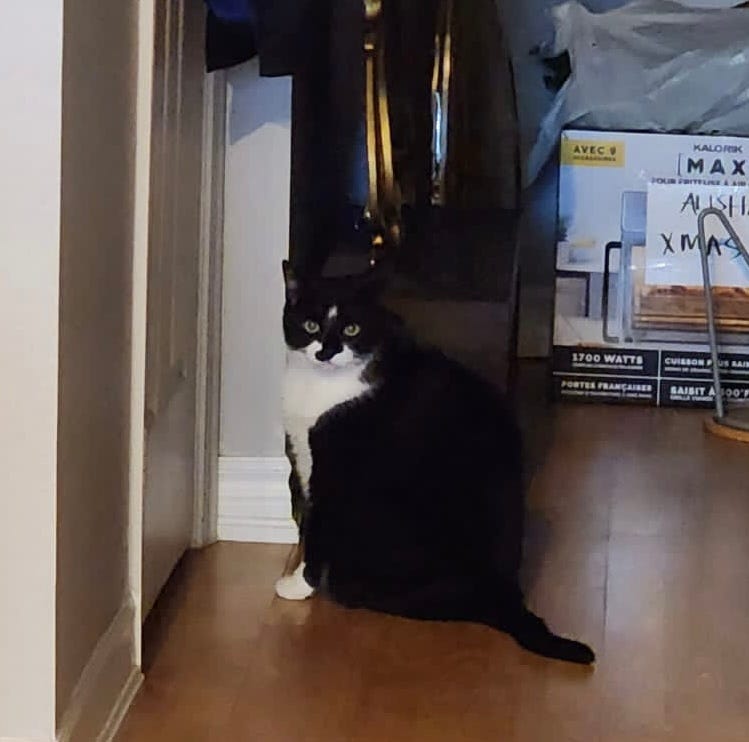Can you help me?
I would really appreciate that...
Back in 2018, I had to write my first reflection paper for an MBA course. Most of the people in our cohort had too much to say and were worried about the word limit.
I was on the opposite end of the spectrum. I could barely reach 70% of the word limit. And this was not because I was articulate with my feelings.
It was because I didn’t know what to write. I wrote it like my mind thinks- in a very analytical fashion. And that didn’t change much till 2020 when I graduated.
So in January 2021, I decided to change that through this newsletter. Apart from sharing these awesome stories, I wanted to get better at writing.
I feel I’ve come a long way and I’ve decided to take it up as a full-time responsibility (or something that pays me😛).
So here’s the ask-
I am looking to write for brands in the sustainability and social impact space-newsletters, blogs, and any long-form content.
My only filter is- they should have planet Earth as a stakeholder.
If there’s someone in your network whom I can help with, please let me know. (I am more than happy to do part-time/contract work. In fact, I prefer that)
Moving onto this week’s content. So today, we have-
Unpopular opinion- I prefer my groceries delivered in a plastic bag
Another startup that is taking a data-driven approach to reforestation
🛍️Unpopular opinion- I prefer my groceries delivered in a plastic bag
I prefer my grocery delivered in plastic bags. I don’t want them in reusable bags. Here’s my reasoning-
Supermarkets have started replacing plastic bags. They now have tote bags or paper bags. We mostly order groceries online.
With every order, we have ~10 tote bags. We usually order twice a month. In 6 months, we would have 120 bags.
You’ve to use a reusable bag ~100 times to offset its impact. I don’t want to do the math. But you get it- I can never offset the impact.
A household doesn’t need more than 4-5 reusable bags. You’ve to use a plastic one ~3 times to offset it. I can easily do that.
Paper bags are no better. They’ve 3 times the carbon footprint of a plastic bag. And after the first use, they are soggy or torn.
Sometimes, the better options are not really better. Brands need to understand that. And do better.
🍛This startup is aiming to end food waste and fight hunger
The irony…While there is so much food waste happening, 1 in 9 people on the planet face food deprivation. There is no shortage of food on the planet- it’s just distributed unevenly, like many other resources. Restaurants, catering, and event companies have plenty of leftovers. It’s more convenient for them to throw it than donate it. Homeless, low-income people don’t have the means to connect with these places.
Bridging the gap…Goodr is solving this through an app and blockchain technology. It picks up edible surplus food and donates it to those in need. Through the app, clients can indicate how much food has to be picked and from where. Goodr team reaches the spot, packs and picks up the food, and delivers it to the beneficiaries.
The team logs every part of the transaction via the blockchain- so the donor can see who benefitted from the food.
The donor pays Goodr to donate the food- they can show them as donations and claim tax deductions.
As everything is on the blockchain, the beneficiary can share testimonials with the donor.
Make money while doing good…It does not operate as a charity but as a for-profit business that operates as a waste management company- except that the waste here is not really a…waste. It also offers services like taking food no longer suitable for human consumption and sending it for processing as compost or animal feed.
🌳A data-driven approach to reforestation
There lies an opportunity…We have around 6 billion hectares of usable land on the planet. But due to wildfires, deforestation, and abandoned agriculture efforts, around 2 billion hectares are degraded- an area the size of the US and China combined. This degradation impacts 3.2 billion people annually. If used wisely, an area of this size could solve some of the most pressing issues on the planet- increasing carbon emissions, food crises, and damaged ecosystems.
Making reforestation data-driven…Netherlands-based Land Life Company is on a mission to help restore this degraded land. It’s taking a data-driven approach to make reforestation cheaper and more efficient. Apart from combating climate change, their efforts would also provide a livelihood for local people. In the first few critical months, the plants are kept in a cocoon (bottom left image below) that holds 25 liters of water and prevents the plants from weeds, animals, and birds, harsh heat, and dry winds.
The team starts the reforestation process by assessing the land using drones and satellites, and by collecting data from climatic and soil samples.
They then select the tree species that are suited to the locations where they are planted.
The seedlings are then placed in the Cocoon which enhances their chance of becoming a fully grown tree.

And then…Within 6-12 months, the young trees are ready to come out of the cocoon (literally) and thrive independently. It is running around 20 projects on 4 continents with most of its large-scale plantings taking place in Spain, the US, and Australia. They also helped to recreate Sudan’s tree cover in a project jointly run by the country’s forestry commission and the United Nations Refugee Agency (UNHCR).
🚙You don’t need a pickup truck to go to your office
If SUV drivers were a nation, they would rank seventh in the world for carbon emissions
Thanks for reading today’s edition. If you have any thoughts or questions, feel free to write to me by replying to this email.
Have a great weekend😊











